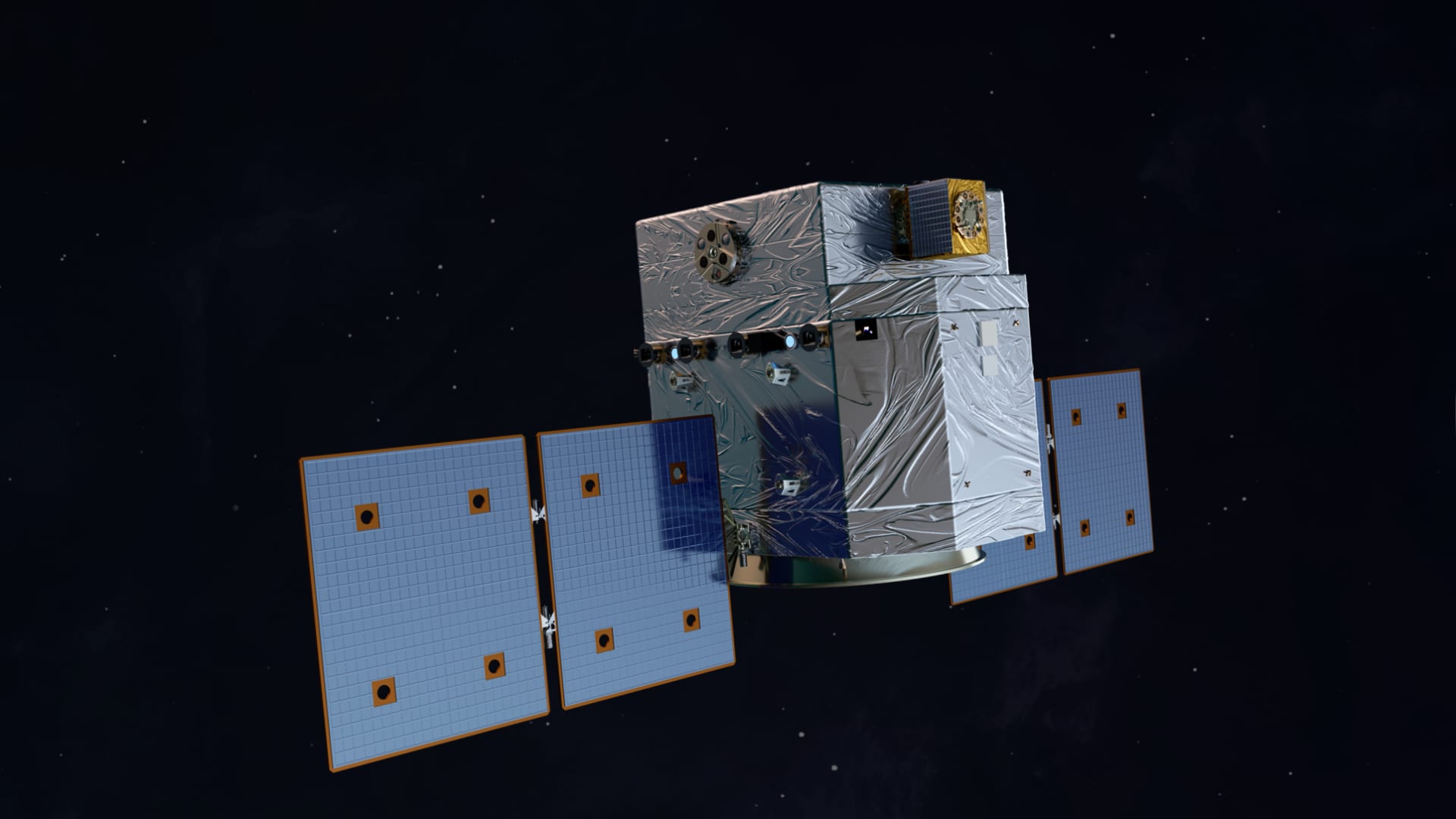Sierra Space CEO unveils new satellite product ahead of Dream Chaser launch, possible IPO

Amid preparations for its spaceplane’s maiden flight and an initial public offering as soon as next year, Sierra Space is expanding its satellite offerings.
Ahead of the much-anticipated solar eclipse, the commercial space unicorn unveiled its aptly named Eclipse line of satellite buses — the main structures of satellites — to serve a wide range of missions in orbits ranging for low Earth to cis-lunar.
“We’ve actually been waiting for six months, so it’s like, this [name], we really thought about it,” Tom Vice, Sierra Space chief executive said in an interview for CNBC’s “Manifest Space” podcast. “I think the name is very appropriate, because I think it will change everything in terms of the affordability of building the next generation buses for the next generation satellites.”
Valued at $5.3 billion as of September, Sierra Space was spun out of defense contractor Sierra Nevada Corporation three years ago. Touting a three-decade spaceflight heritage, the independent subsidiary is the result of an ambitious early bet by SNC’s billionaire husband and wife team, Fatih and Eren Ozmen.
Sierra Space touts a diverse space and defense tech portfolio spanning space transportation, space habitation, propulsion and satellites. It’s perhaps best known for its NASA-contracted, reusable spaceplane Dream Chaser which will run cargo resupply missions to the International Space Station and eventually carry humans to and from orbit.
It’s also working on a commercial space station with Jeff Bezos’ Blue Origin called Orbital Reef, and in January landed a $740 million high-profile Pentagon contract to develop a constellation of missile tracking satellites for the U.S.
The Eclipse offerings bring it further into the spacecraft subsystem business.
On Dream Chaser, Vice said he’s “very confident” it will make its first flight in the fourth quarter of this year. He added the spaceplane passed the first phase of environmental testing in March and said since it will be carrying cargo to the ISS on this first demonstration, the company is dependent on NASA’s manifest and it’s working with the FAA to get a reentry license.
“Dream Chaser is also a vehicle that can spend a year on orbit and be an orbiting space station for microgravity research,” Vice said, speaking to the opportunities for R&D and manufacturing that he and the company are betting will materialize in low earth orbit, providing business cases for the space plane as well as its space habitats.
Sierra Space has identified four segments it believes can be served by microgravity to disrupt industry on earth: stem cells, oncology, vaccines and industrial glass. Those markets combined amounted to $900 billion in 2022, according to Vice, and are growing at such a rate to reach roughly $3.7 trillion by 2038.
“You can do some things that are radically different in terms of protein crystallization that we know actually will produce better drugs. So we think actually this is a huge market for us,” he said.
Sierra’s nearer-term focus is on finalizing a Series B funding round to raise capital for potential acquisitions, on getting Dream Chaser flying, and on getting its financials in a strong position ahead off a possible IPO as soon as next year.
“We’ll start to look at that as an option and make the decision depending on what the markets look like,” said Vice. “But I think we’re very quickly becoming a company that has been able to demonstrate significant top line growth.”
Sierra’s sales are expected to double in 2024, according to Vice. Its backlog currently tops $4 billion, and it’s working to become cash flow positive.
After significant layoffs in November, Sierra Space also plans to double its workforce this year.
While it has received offers to go public via a special purpose acquisition company, or SPAC, the plan is to embark on a traditional IPO process.
“We’re a company that thinks a lot about ushering in the most profound industrial revolution in human history,” explained Vice.




